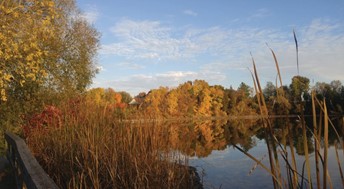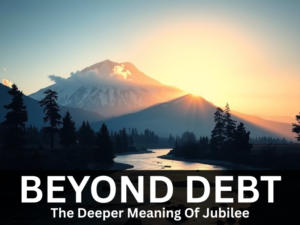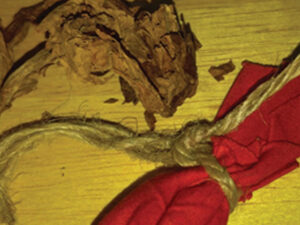Called to a Sacrificial Love

2 Kings 2:1-12; Psalm 50:1-6; 2 Corinthians 4:3-6; Mark 9:2-9
Reflection by Leona Lortie
During the Season of Epiphany, we reflect on the appearance of Christ to the world. This time is intertwined with the incarnation, the profound event of God binding God’s self, through Christ, with creation. The significance of Jesus’ birth represents a universal shift in God’s relationship with God’s own creation, which impacts not just humanity but the entirety of creation. “Behold! I am making all things new” (Rev 21:5).
Throughout scripture we read that God cares deeply for creation. God’s action and sacrifice in incarnation signifies an affirmation for and a depth of love not only for humanity but also the rest of what God repeatedly pronounced “good” throughout Genesis 1, with the final declaration in Gen 1:31 that God’s creation is “very good.” These statements show that creation is precious to God, not to be abandoned, but to be nurtured and cared for at great cost. Additionally, God commissions humanity with the task of participating in creation as God’s image- bearers (Gen 1:27-28).
In Mark 9, Jesus takes Peter, James and John up on a mountain and, in the company of Moses and Elijah, two great figures from the Old Testament, God makes another pronouncement: “This is my beloved son; listen to him” (Mark 9:7). In the Gospel of Mark, the more Jesus is revealed as Messiah, the more it is revealed that he will be a Messiah who serves and suffers and that he will inevitably “give his life for the ransom of many” (Mark 10:45). This section in Mark highlights that those who follow after Jesus, as his disciples, will be called to serve, like Jesus, as they participate in God’s creation.
Mark 9, like Genesis 1, is an invitation to participate with God in the task of caring for creation and to serve God’s creation, especially in places of need. Paul makes a similar connection between the creation story and the revelation of Jesus: “For God who said, ‘Let light shine out of darkness,’ has shone in our hearts to give the light of the knowledge of God’s glory in the face of Jesus Christ” (2 Cor 4:6). At the heart of this section is Paul’s call for the church in Corinth to fully live out the implications of what it means to be “transformed in [Christ’s] image” 2 Cor 3:18). Announcing that God is transforming all things!
We reflect on God’s sacrificial love during Epiphany because God, through Christ, entered creation to restore brokenness, to bring peace and to unify us to Godself and God’s righteousness. All throughout scripture, creation joins in celebrating God’s actions (e.g. Ps 96:11- 12; Isa 55:12). During the weeks of Epiphany we are reminded of God’s sacrificial love and we are invited to follow this example to enter into creation and to work for righteousness, peace and justice. We are invited to contemplate and celebrate God’s glory and presence and join in God’s sacrificial love for creation. Just as Christ “did not come to be served, but to serve” (Mark 10:45), we are also called to love and serve.
What does this look like today, when creation is in crisis, where species are disappearing, our environment, our soil, water and air are corroding, and communities all over the world can no longer see sustainable livelihoods for current and future generations? What are we called to do in this time when our societies and governments prioritize short- term profits over sustainability, safety, and peace? We are called to enter into creation, to listen to Christ, and follow Christ’s example. We are called to a sacrificial love for all of creation.

Leona Lortie lives in Niverville, Manitoba and works remotely for the Mennonite Central Committee Ottawa Office in the role of Public Engagement and Advocacy Coordinator.
















